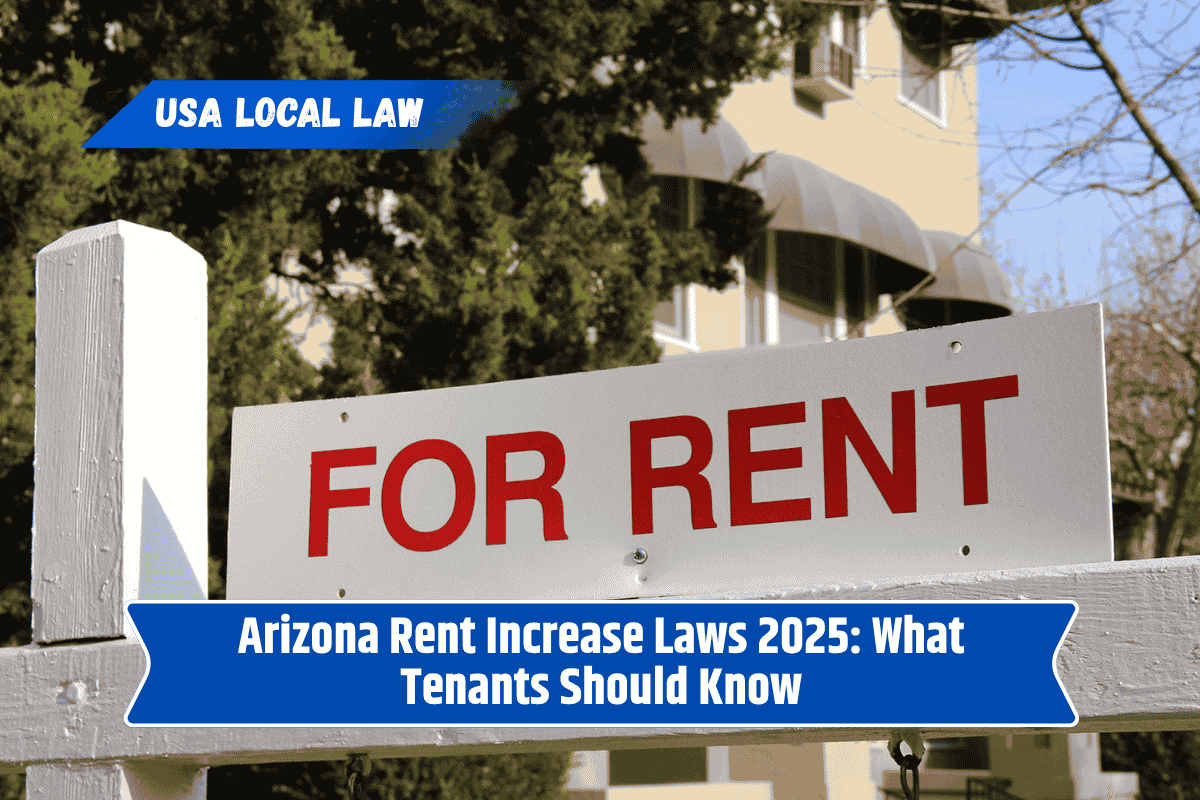Renting a house or apartment in Arizona? It’s important to know your rights, especially when it comes to rent increases. In 2025, some updates have been made to Arizona’s rental laws.
If you’re a tenant, you should be aware of what landlords can and cannot do when raising your rent. This guide explains the key points in simple English, so you can stay informed and protect yourself.
How Much Can Rent Be Increased in Arizona?
In Arizona, there is no limit on how much a landlord can raise your rent. That means they can increase it by any amount they choose. However, there are rules about when and how the rent can be raised.
If you’re on a month-to-month lease, your landlord must give you at least 30 days’ written notice before raising the rent. If you have a long-term lease, the landlord cannot increase your rent until the lease ends—unless your rental agreement allows it.
Notice Period for Rent Increase in 2025
As of 2025, Arizona law still requires the same notice periods. Here’s what tenants need to remember:
For month-to-month rentals, your landlord must give 30 days’ notice in writing. This notice should clearly state how much the rent is increasing and when the new rent will begin.
For fixed-term leases (like 6 months or 1 year), the landlord cannot change the rent until the lease ends, unless there is a clause in the contract that allows for changes during the lease term.
Is There Rent Control in Arizona?
Arizona does not have rent control laws. This means cities and counties in Arizona cannot set limits on how much landlords can charge for rent. Even large cities like Phoenix and Tucson must follow state law, which allows landlords to raise rent without a cap, as long as they follow the correct notice rules.
Reasons for a Rent Increase
Landlords may increase rent for different reasons. Some common ones include:
To match current market prices in the area
To cover higher property taxes or maintenance costs
To make improvements to the property
To remove tenants by making rent unaffordable
However, a landlord cannot raise rent to punish you or discriminate against you. For example, they can’t increase your rent just because you filed a complaint or belong to a certain religion or race. That would be illegal under Fair Housing laws.
Can You Negotiate a Rent Increase?
Yes, you can try to negotiate. If your landlord tells you the rent is going up, you can talk to them and ask for a smaller increase or offer to sign a longer lease in exchange for a lower rate. It doesn’t always work, but it’s worth trying. Be polite, honest, and explain your situation.
What If You Can’t Afford the Rent Increase?
If the new rent is too high for you, you have a few options:
Look for cheaper housing nearby
Talk to your landlord and ask for more time or a smaller increase
Check if you qualify for rental assistance programs
Consider getting a roommate to share costs
You can also contact a local housing agency or legal aid office for help. They can explain your rights and help you find support.
What Tenants Should Watch Out for in 2025
In 2025, Arizona tenants should stay alert to the following:
Always get rent increase notices in writing
Check your lease to see if mid-term increases are allowed
Know that there are no rent increase limits, but proper notice is required
Watch for illegal increases related to discrimination or retaliation
Don’t be afraid to ask questions or seek legal help if things seem unfair
Arizona rent laws give landlords the right to raise rent, but they also give tenants the right to proper notice. As of 2025, there’s still no rent control in the state, so the amount of the increase isn’t limited.
But knowing the rules, reading your lease carefully, and keeping records of communication can help you avoid surprises. If you’re ever unsure, it’s okay to ask for legal help or contact a tenant support group.
